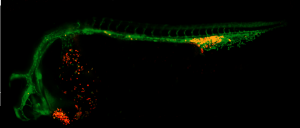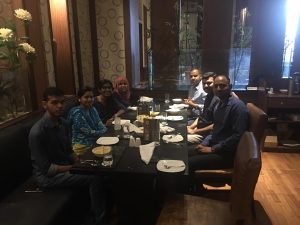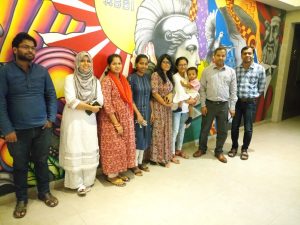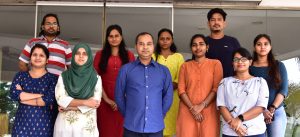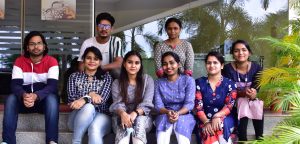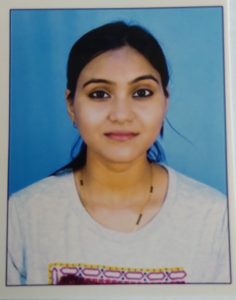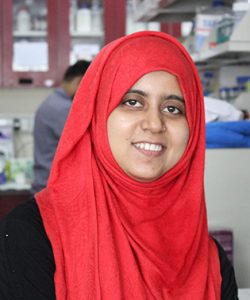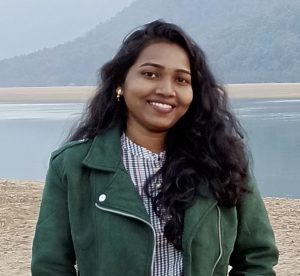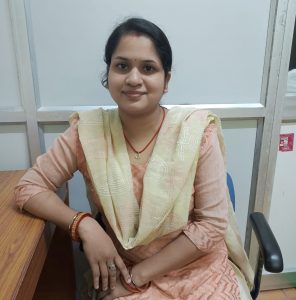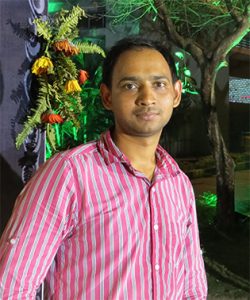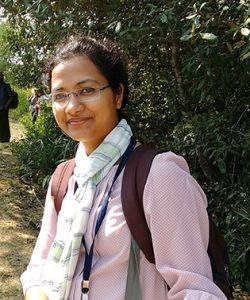Academics
| Degree | University/Institution |
|---|---|
| MSc. in Biotechnology | Savitribai Phule Pune University, India |
| P.hD. Developmental Biology | University of Tübingen, Germany. |
Work Experience
| Position | University/Organisation | Period |
|---|---|---|
| Scientist-E | Institute of Life Sciences, Bhubaneswar | January 2019 – Present |
| Scientist-D | Institute of Life Sciences, Bhubaneswar | September 2015 – December 2018 |
| Ramalingaswami Fellow | Institute of Life Sciences, Bhubaneswar | December 2011 – December 2016 |
Awards & Recognition
Research
| Details |
|---|
The focus of our laboratory has been to study how organs develop during embryogenesis. The organogenesis involves most spectacular coordination of biological processes such as cell division, differentiation and migration regulated by well-orchestrated processes at molecular level such as transcription factor activity, cell to cell communication, biochemical process and changes in cell architecture among others. We study the developmental processes with the hope that, what we learn from the embryo will shed light on how normal physiological processes are coordinated in the adults. This in turn could help us better understand the disease biology where the normal cellular and molecular process become mis-regulated. In particular, we are investigating the molecular mechanisms underlying kidney development and function using zebrafish as a model. We are also interested to create zebrafish models of human kidney diseases and use these to discover new drugs or drug targets. Other areas of interest are endothelial cell biology, angiogenesis and understanding regulation of gene expression during embryogenesis. We use genome editing techniques (CRISPR and TALEN), zebrafish transgenesis and a range of functional assays and imaging techniques in our research. |
Publications
| Details |
|---|
|
Group
| Details | ||||||||||||||||||||||||
|---|---|---|---|---|---|---|---|---|---|---|---|---|---|---|---|---|---|---|---|---|---|---|---|---|
Etsrp:GFP::Gata1:dsRed
Praveen’s PhD defence 2018 Supriya’s PhD defence 2019
2021
Postdoctoral Fellow
Ph.D Students
Technicians
Alumni
|
Grants
| Details |
|---|
Extramural Grants as PI “Understanding the development and function of kidney using zebrafish” funded by Science and Engineering Research Board, MoST, Government of India (2017-2021). “Tumour vascular targeting using small molecule inhibitors” funded by Department of Biotechnology, MoST, Government of India (2015-2018). |
Contacts
| Address | Fax | Office | |
|---|---|---|---|
| rkswain@ils.res.in | Nalco Square, Chandrasekhar Pur, Bhubaneswar-751023, India | 0091 674 2300728 | (0674) 2304 301, 2304 312(Lab) |
Highlights
Positions
| Details |
|---|
I always have openings for talented and highly motivated PhD students. I take PhD students through ILS PhD program. ILS advertises intake of PhD students typically in December and June each year. PhD candidates should have a master’s degree (with 60% mark or equivalent grade) and qualification in one of the national entrance tests (CSIR/UGC-JRF, DBT-JRF, UGC-RGNF, ICMR-JRF etc.). Please write to me anytime during the year if you are interested to join our lab. and I can inform you about ILS advertisements. Candidates wishing to join my group as a post-doctoral fellow should be highly motivated, technically accomplished and should be interested to use zebrafish as a model organism to understand human disease biology. Prior experience in molecular biology, developmental biology, cell biology, imaging, genomics, bioinformatics etc. will be considered favourably. Please write to me if you are interested to join my group and I can sponsor you for various postdoctoral fellowships. |


